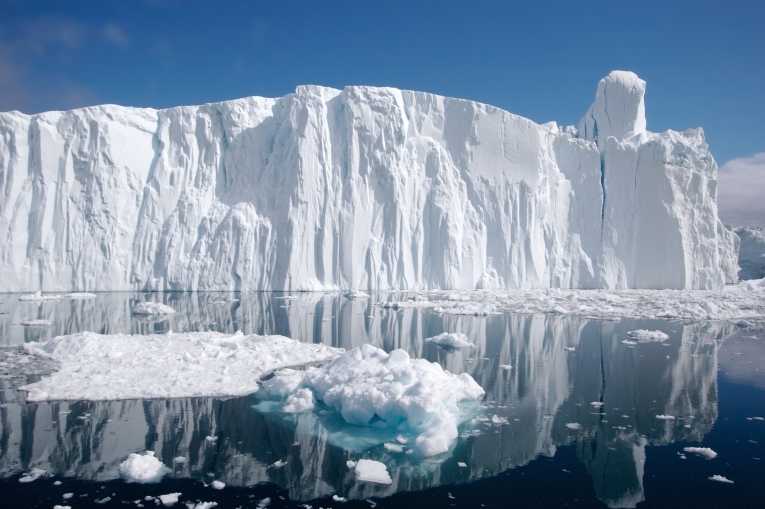Scientists have raised alarming prospects for the future of the climate of north western Europe as meltwater pours south from the Arctic possibly slowing the warming ocean currents that give countries like the United Kingdom their current temperate climates.
Scientists have admitted that the icy water is a wild card as climate changes, but have been moved to dismiss speculation that a catastrophic cooling, like that featured in the Hollywood blockbuster The Day After Tomorrow, could strike Europe.
The results of project CLAMER, a collaboration of 17 institutes in 10 European countries to examine and make sense of 13 years worth of research in 300 European Union marine environment and climate change projects, will be published in full in September.
In 2009, the pool of icy water was twice the volume of Lake Victoria, Africa's largest lake, and was still growing. Scientists believe that when atmospheric patterns shift the water could sweep down into the Atlantic with major effects for countries bordering the ocean. The fact that the water, the result of increased flows in Arctic and Scandinavian rivers from melting ice, is fresh could also have major impacts on ocean environments.
Winds have kept the water in the Beaufort Gyre or Canada Basin but they will almost certainly change says, Oceanographer Laura de Steur of the Royal Netherlands Institute for Sea Research.
She said: ''In addition, sea ice that is thinner is more mobile and could exit the Arctic faster. In the worst case, these Arctic outflow surges can significantly change the densities of marine surface waters in the extreme North Atlantic. What happens then is hard to predict.''
While Dr de Steur dismissed the idea of a sudden new Ice Age as Hollywood absurdity, the effect of the icy water could cause major changes for human and marine life in Europe by slowing and diluting the salt content of the warm water currents that influence European climates.
While climate change has focused on warming – and temperature rises may mitigate the effect of this current change - it is likely that the UK and Scandinavia could cool substantially.
The RAPID and RAPID-WATCH projects have also started releasing early results from monitoring devices, although to be of statistical significance the American, Norwegian, Dutch and British scientists will have to wait for 2014.
Among the changes they are forecasting are a major drop in the salt content of the Baltic, causing problems for species adapted to the extreme conditions there.
They also expect rising sea levels and warmer, more acidic waters around Europe, disruptions of the marine food chain and bigger and more frequent storms. Erosion on shorelines will also increase and the scientists behind the research are pushing for public education on the possible changes ahead which may require major action by governments.










